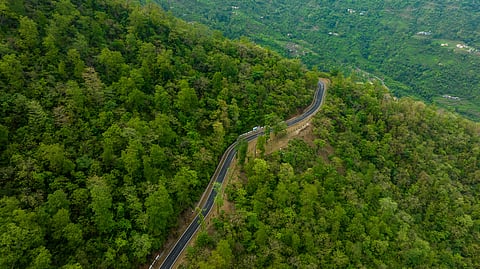

The crucial processes that regulate the planet's temperature are fading away as suggested by a recent study which reported that last year, almost no carbon dioxide (CO2) was absorbed by trees and land.
The absorption of CO2 by trees is one of the processes that help in the cooling of the planet. Another major process involved in cooling the planet is performed by zooplanktons who rise up to the ocean's surface to feed off the microscopic algae at night and remove millions of tonnes of carbon from the atmosphere annually.
The study titled Low latency carbon budget analysis reveals a large decline of the land carbon sink in 2023 mentioned that in 2023, the CO2 growth rate was 3.37 ± 0.11 parts per million (PPM) at Hawaiian peak Mauna Loa, 86 per cent above the previous year, and hitting a record high since observations began in 1958.
"This implies an unprecedented weakening of land and ocean sinks, and raises the question of where and why this reduction happened," the study mentioned.
It also noted that the global CO2 emissions only increased by 0.6 ± 0.5 per cent last year.
The report, however, noted that it is too early to conclude that the collapse of the land sink in the aftermath of 2023 is set to be a regular phenomenon.
It reasoned that the great wild fires in the northern hemisphere in 2023 contributed to the collapse of the land sink.
“We’re seeing cracks in the resilience of the Earth’s systems. We’re seeing massive cracks on land – terrestrial ecosystems are losing their carbon store and carbon uptake capacity, but the oceans are also showing signs of instability,” Johan Rockström, director of the Potsdam Institute for Climate Impact Research, reportedly told an event at New York Climate Week in September, this year.
It is understood that nature's carbon sinks will lose their efficiency with time but the pace at which the land sink showed these signs were not factored by any researcher.
“Overall, models agreed that both the land sink and the ocean sink are going to decrease in the future as a result of climate change. But there’s a question of how quickly that will happen. The models tend to show this happening rather slowly over the next 100 years or so,” Andrew Watson, head of Exeter University’s marine and atmospheric science group, was quoted in a news report.